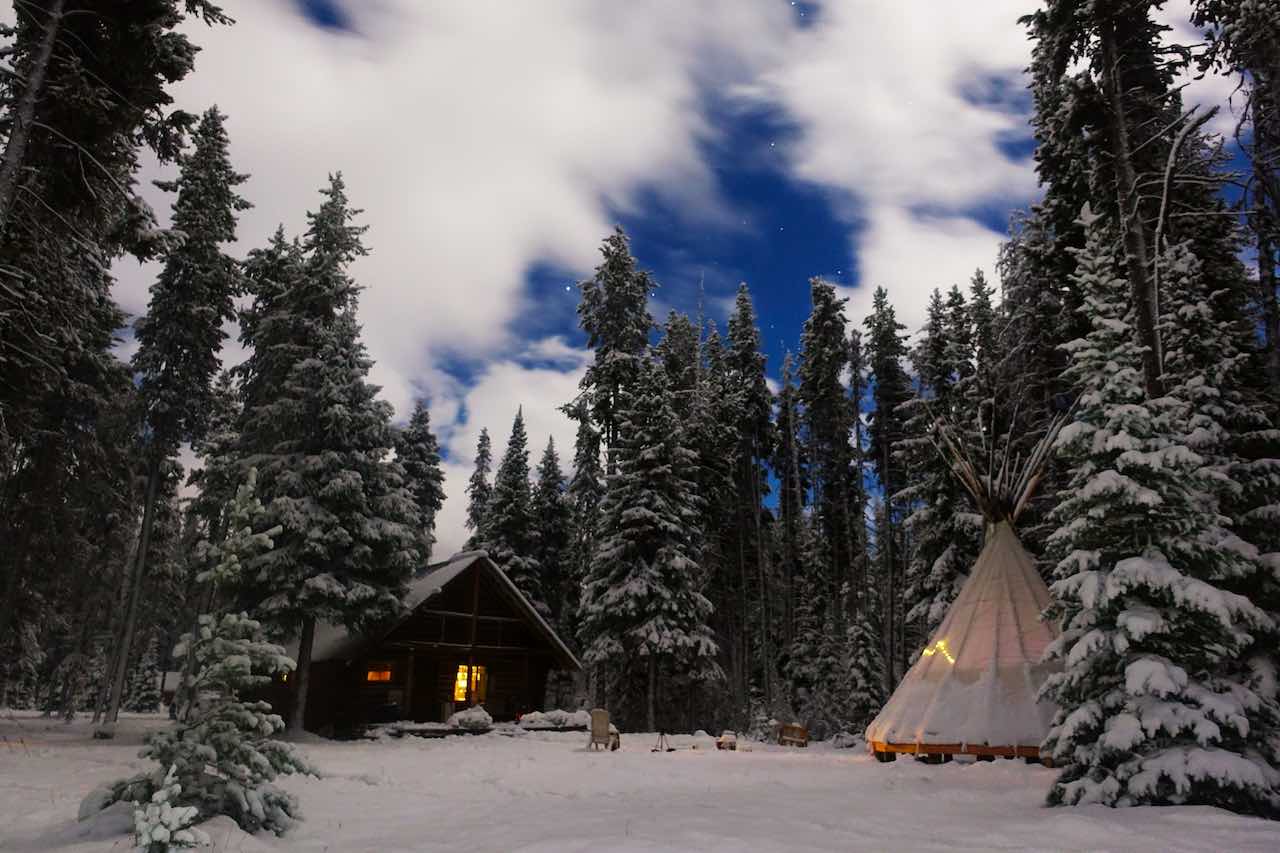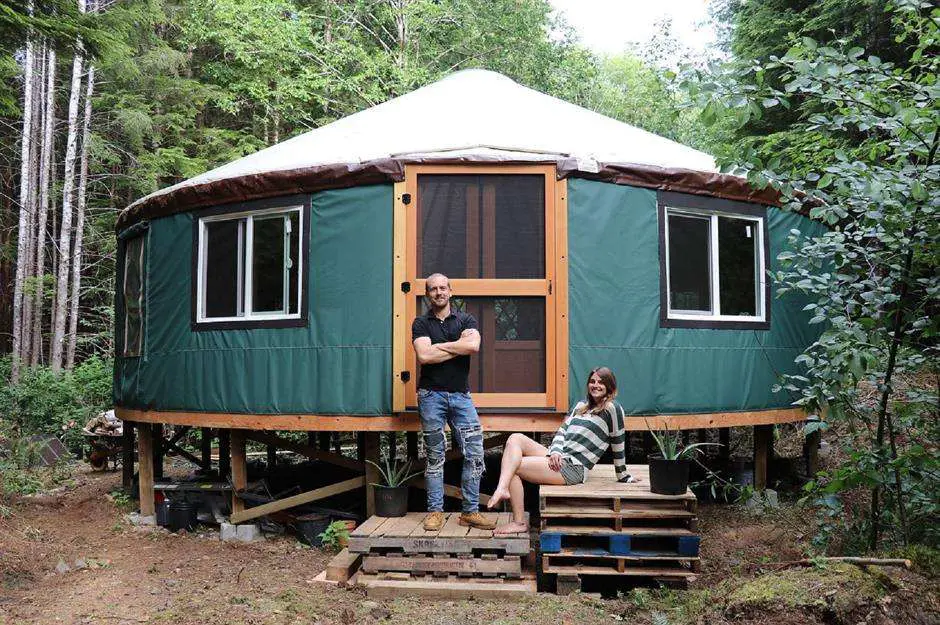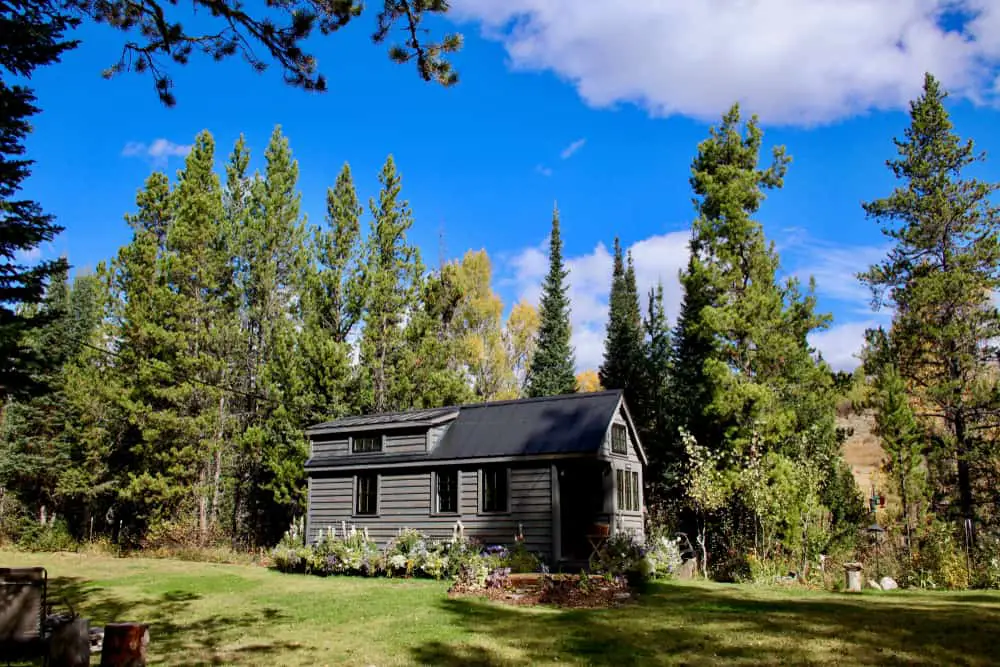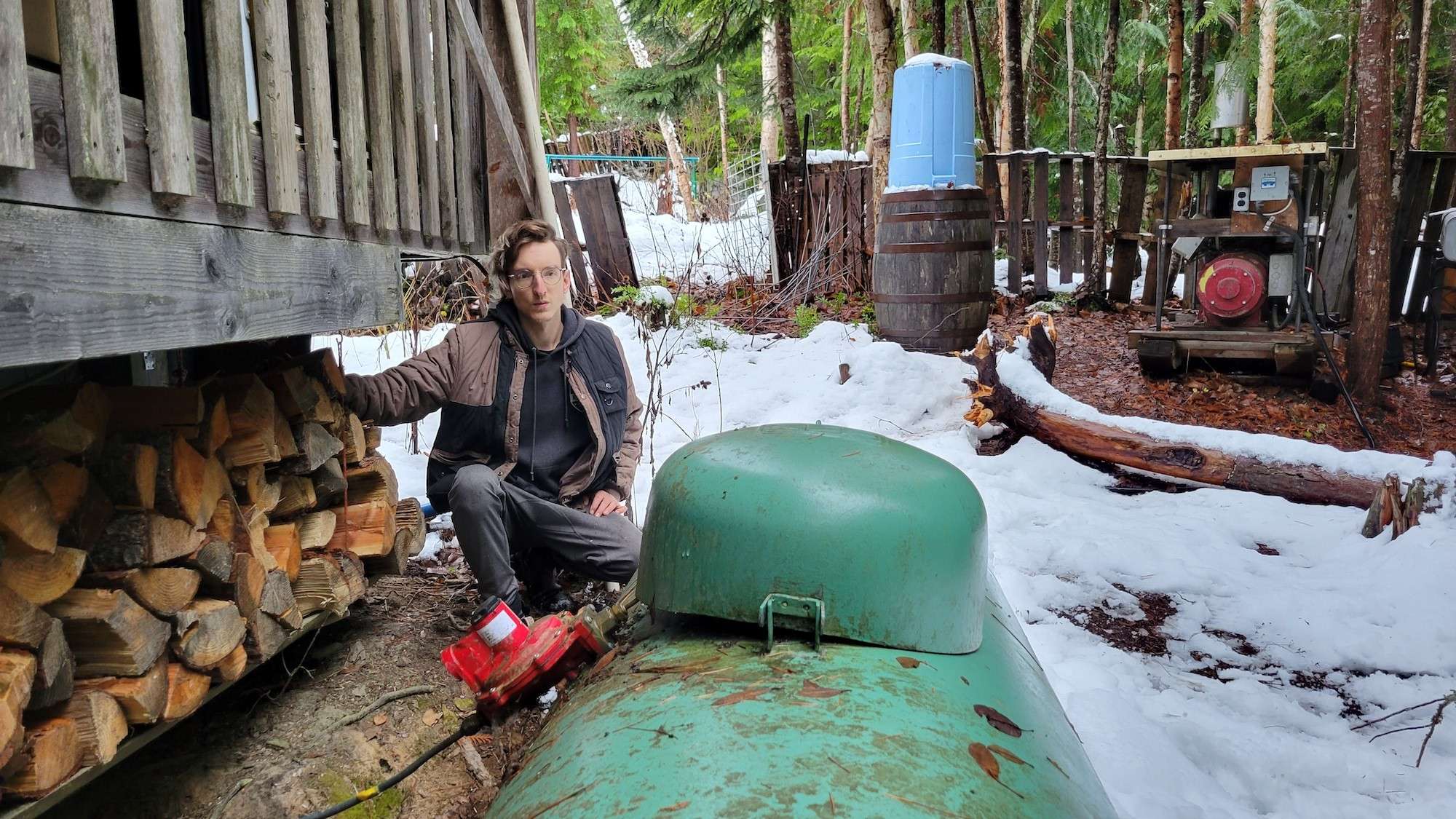Imagine escaping the hustle and bustle of city life, disconnecting from the grid, and living off the land in the wilds of British Columbia. In this guide, we’ll explore the possibilities and challenges of off-grid living in this beautiful province on Canada’s west coast. With its low population density, relatively affordable housing, and abundant natural resources, British Columbia offers an ideal environment for those seeking a self-sufficient and sustainable lifestyle. However, the harsh climate, limited road access, and the need for winter preparations present unique obstacles to overcome. From generating electricity through solar and wind power to growing crops in greenhouses, we’ll uncover the secrets to surviving and thriving in this off-grid paradise. Whether you’re dreaming of a remote cabin in the mountains or a quiet retreat on a picturesque island, this guide will show you how to embrace off-grid living in British Columbia.
Climate in British Columbia
British Columbia is known for its variety of climates, ranging from warm humid in the coastal regions to subarctic and even tundra climates in the northern areas. The local climate is a major factor to consider when planning for off-grid living in this province.
Variety of climates
Due to its geographical diversity, British Columbia experiences a wide range of climates. The coastal areas enjoy milder temperatures, while the interior regions can experience colder winters and hotter summers. The northern areas of the province have a subarctic climate, with long, cold winters and short, cool summers. In some parts of the province, particularly at higher elevations, tundra climates can be found.
Harsh winters
One of the main challenges of off-grid living in British Columbia is the harsh winter weather. The province experiences heavy snowfall in many areas, especially in the mountainous regions. This can make transportation and access to essential services difficult during the winter months. However, with proper preparation and winterization of your off-grid living setup, you can ensure that you stay comfortable and safe throughout the winter.
Crop growth limitations
The local climate in British Columbia presents limitations for crop growth, especially in the northern regions. The short growing season and cold temperatures make it challenging to cultivate certain crops. However, with the use of greenhouses, crops such as berries, vegetables, grains, grapes, and mushrooms can be successfully grown. Greenhouses provide a controlled environment that protects crops from harsh weather conditions and extends the growing season.
Off-Grid Living Preparations
Living off-grid in British Columbia requires careful preparation to ensure your comfort and safety, especially during the winter months.
Winter preparations
Preparing for the winter is crucial when living off-grid in British Columbia. You will need to ensure you have sufficient insulation in your living space, as well as a reliable heating source. Wood stoves are a popular choice for off-grid living, as they provide both warmth and a means for cooking and heating water. Additionally, having an emergency supply of food, water, and fuel is essential to ensure you can sustain yourself during severe weather conditions or power outages.
Working outdoors
Living off-grid often means being fully self-reliant. This includes relying on your own physical labor to maintain your property and meet your needs. In British Columbia, this can mean working outdoors in various weather conditions, including rain, snow, and cold temperatures. It’s important to have the appropriate clothing and gear to protect yourself from the elements while working outdoors.
Building codes and permits
While off-grid living is legal in British Columbia, there are still building codes and permits that must be followed. These regulations ensure the safety and sustainability of off-grid living structures. Before starting any construction, it’s important to research and understand the local building codes and obtain any necessary permits. This will help you avoid legal issues and ensure your off-grid living setup meets the required standards.

Generating Electricity
Generating your own electricity is a key aspect of off-grid living. In British Columbia, there are several viable options for generating power off the grid.
Solar power
British Columbia receives a significant amount of sunlight, especially in the southern regions. Solar power is a reliable and sustainable option for off-grid electricity generation. Installing solar panels on your property can provide you with a clean and renewable source of power. However, it’s important to consider the potential limitations of solar power during the winter months when sunlight is scarce.
Wind power
Wind power is another viable option for generating electricity off the grid in British Columbia, particularly in areas with consistent wind patterns. Installing a small wind turbine can provide you with a reliable source of renewable energy. However, it’s important to conduct a thorough assessment of the wind patterns in your area before investing in this technology.
Viability of renewable energy
Overall, renewable energy sources such as solar and wind power are viable options for off-grid living in British Columbia. With proper planning and investment, you can generate your own electricity and reduce your reliance on traditional power sources. However, it’s important to consider factors such as the local climate and seasonal variations in energy production when deciding on the most suitable renewable energy solution for your off-grid setup.
Growing Crops
Growing crops in British Columbia can be a rewarding experience, but it also presents its own set of challenges.
Challenges of growing crops
The climate and geography of British Columbia present challenges for crop growth. The short growing season, cold winters, and limited sunlight can make it difficult to cultivate certain crops. Additionally, pests and diseases specific to the region can pose a threat to crop health. It’s important to research and choose appropriate crop varieties that are well-suited to the local climate and growing conditions.
Suitable crops for greenhouses
Greenhouses provide a controlled environment that can help overcome the challenges of growing crops in British Columbia. Crops such as berries, vegetables, grains, grapes, and mushrooms can thrive in greenhouse settings. The controlled temperature, humidity, and protection from harsh weather conditions allow for extended growing seasons and improved crop yields. Investing in a well-designed greenhouse can significantly enhance your ability to grow a variety of crops year-round.
Freshwater availability
British Columbia is known for its abundant freshwater resources. Average rainfall and snowfall vary across the province, but freshwater availability is generally high. This is an advantage for off-grid living as it provides a reliable source of water for crops, livestock, and personal use. However, it’s important to manage and conserve water resources responsibly to ensure long-term sustainability, especially during drier periods or in regions with lower rainfall.

Wildlife in British Columbia
British Columbia is home to a diverse range of wildlife species, which can have both positive and negative impacts on off-grid living.
Diverse wildlife species
From raccoons and geese to bears, coyotes, cougars, and various fish species, British Columbia boasts a rich and diverse wildlife population. This can provide opportunities for observation and interaction with nature, making off-grid living in the province truly unique. However, it’s important to take precautions to ensure your safety and the well-being of wildlife. Understanding local wildlife behavior, implementing proper storage and waste management practices, and respecting natural habitats are essential when coexisting with wildlife.
Impact on off-grid living
The presence of wildlife can have an impact on off-grid living in British Columbia. While wildlife encounters can be exciting and offer a connection to nature, it’s important to be aware of potential risks and challenges. Wildlife may be attracted to food sources or pose a threat to livestock and agricultural crops. Implementing appropriate measures such as secure storage of food and waste, electric fencing, and deterrent techniques can help minimize conflicts and ensure a harmonious coexistence with local wildlife.
Road Access
Road access can be limited in many parts of British Columbia, particularly in rural and remote areas.
Limited road access
Some off-grid locations in British Columbia may have limited road access, making transportation and logistics more challenging. This can be particularly true in the northern regions, where rugged terrain and vast wilderness areas limit road infrastructure. It’s important to consider the accessibility of your chosen off-grid location and plan accordingly for transportation and emergency services.
Seasonal roads
In some areas of British Columbia, roads may be seasonal and closed during winter months due to heavy snowfall or hazardous conditions. This can further restrict access and necessitate alternative transportation methods, such as snowmobiles or off-road vehicles. When choosing an off-grid living location, it’s important to consider the availability of year-round road access and the impact seasonal closures may have on your daily life and emergency preparedness.

Cost of Living
Considering the cost of living is crucial when planning for off-grid living in British Columbia.
Price of land
The price of land in British Columbia varies greatly depending on location, size, and proximity to amenities. In general, land prices tend to be higher in more populous areas and regions closer to major cities such as Vancouver. However, there are still affordable options available, especially in more rural or remote regions. It’s important to thoroughly research and compare land prices in different areas to find a suitable and affordable off-grid living location.
Average cost of living
The cost of living in British Columbia is generally lower than the national average in Canada. However, it’s important to consider that off-grid living may come with additional costs, such as alternative energy systems, water management infrastructure, and maintenance of off-grid living structures. While off-grid living can offer cost-saving opportunities in the long run, it’s crucial to budget and plan for these initial investments and ongoing expenses.
Employment opportunities
Employment opportunities can play a significant role in the feasibility of off-grid living. British Columbia offers a range of industries that can provide employment opportunities for off-grid residents. Industries such as construction, film, mining, tourism, and forestry are prominent in the province, creating potential jobs for those seeking employment while living off-grid. However, it’s important to research the availability and nature of employment opportunities in your chosen off-grid location to ensure financial sustainability.
Natural Disasters
British Columbia is prone to various natural disasters, which must be taken into account when planning for off-grid living.
Types of natural disasters
Natural disasters that can occur in British Columbia include avalanches, wildfires, tsunamis, floods, landslides, storms, and earthquakes. These events can have devastating impacts on communities and infrastructure, and being prepared is crucial for off-grid residents. Understanding the specific risks and hazards in your area and implementing appropriate safety measures, such as evacuation plans, emergency supplies, and monitoring systems, can help mitigate the impact of natural disasters.
Preparation and precautions
Being prepared and taking necessary precautions is essential when living off-grid in a region prone to natural disasters. Some key steps to consider include:
- Creating an emergency preparedness plan: This includes identifying evacuation routes, establishing communication strategies, and maintaining emergency supplies.
- Building resilient infrastructure: Constructing off-grid living structures that can withstand the potential impact of natural disasters, such as reinforced buildings and secure storage areas.
- Staying informed: Regularly monitoring local weather and emergency services updates to stay aware of potential risks and hazards.
- Maintaining emergency supplies: Stocking up on essential items such as food, water, medical supplies, and alternative power sources to ensure self-sufficiency during and after a natural disaster.

Suitable Locations for Off-Grid Living
British Columbia offers various locations that are suitable for off-grid living, each with its own unique advantages and considerations.
Vancouver Island
Vancouver Island is a popular choice for off-grid living due to its milder climate, abundant natural beauty, and access to amenities. Areas such as Cortes Island and Salt Spring Island offer affordable land options and a supportive off-grid living community. Vancouver Island provides a balance of natural seclusion and proximity to urban centers, making it an attractive choice for off-grid enthusiasts.
Bulkley-Nechako
The Bulkley-Nechako region in central British Columbia offers vast wilderness, ample recreational opportunities, and affordable land prices. The area is known for its stunning landscapes, including rivers, forests, and mountains, providing a picturesque setting for off-grid living. Communities such as Vanderhoof and Burns Lake offer amenities and a close-knit off-grid living community.
Cariboo
The Cariboo region in the central interior of British Columbia offers a mix of rural charm and affordability. It features a diverse range of landscapes, including mountains, forests, and lakes. The communities in the area, such as 100 Mile House and Williams Lake, provide access to amenities and services, while still offering opportunities for off-grid living in a peaceful and natural setting.
Affordability of Off-Grid Living
Off-grid living can offer opportunities for affordable living in British Columbia, particularly in rural or remote regions.
Opportunities for affordable living
British Columbia has a lower cost of living compared to other provinces in Canada, making off-grid living a more affordable option. Land prices can vary greatly depending on location and accessibility, but there are still affordable options available, especially in less populated areas. Additionally, off-grid living can help reduce ongoing expenses such as utility bills, allowing for greater financial independence and long-term cost savings.
Benefits of off-grid living
Off-grid living offers numerous benefits beyond affordability. It promotes self-sufficiency, sustainability, and a closer connection to nature. Living off-grid allows individuals to reduce their ecological footprint, generate their own energy, and cultivate their own food. It can provide a sense of freedom, independence, and peace of mind, away from the hustle and bustle of modern life.
In conclusion, British Columbia offers a range of opportunities for off-grid living, despite its challenging climate and limited road access. With careful planning, preparation, and the right choice of location, off-grid living in British Columbia can provide a unique and rewarding lifestyle that is both sustainable and affordable. Whether it’s the mild climate of Vancouver Island, the wilderness of Bulkley-Nechako, or the rural charm of Cariboo, there are suitable locations for off-grid living throughout the province. By harnessing renewable energy, growing crops in greenhouses, and considering the impact of wildlife and natural disasters, off-grid residents can thrive in this beautiful and diverse Canadian province.



